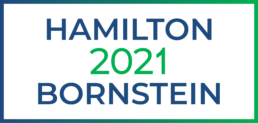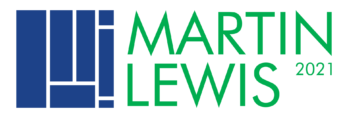This website is a work-in-progress right now. You may find placeholders and missing pages- we apologize for any inconvenience.
Chair of the Cupertino Alliance
BY TYLER MULLINS
EDITED BY JAYDEN LYCON
PUBLISHED 15 NOVEMBER 2021
LAST EDITIED 15 NOVEMBER 2021
The Chair of the Cupertino Alliance, also referred to as the Chair of the Board or simply the Chair, acts as the head of state and government of the Cupertino Alliance. They represent the Cupertino Alliance in official diplomatic events and supervise the sessions of the Alliance. Furthermore, the Chair plans all the Cupertino Alliance sessions, with advice from Delegates. The Chair supervises all projects and Ministers. In addition the chair must also comply and enforce all laws and government orders regardless of the appeal, perform regular checks within all member states, comply with the people’s needs and wants, respond and resolve inter-member issues, effectively discuss with delegates on future projects, research the best time for sessions, maintain decorum within Parliament, help with the management of dependent agencies, and participate in normal delegate activities.
The Chair is elected by the delegates of the Alliance to serve a six-month term, contingent on the Chair’s ability to command confidence, and may run for reelection an unlimited number of times. The Chair has powers appoint and dismiss all Ministers, who oversee various aspects of the Alliance. The Chair may issue Chairmanship Orders, veto Ministerial Orders, and in certain circumstances, veto legislation. The Chair of the Board is required to meet all of the requirements of a delegate, as well as be a valid full member delegate during their term, and must not also hold the position of Minister, Lieutenant Chair, Associate Judge, or Superior Judge. If a Chair loses his delegation status, they will have two weeks to find another nation to delegate. If these two weeks pass by, they must resign. The Chair maintains the right to resign for any reason, though the resigning Chair must name their successor. The successor will continue until the term is ended. The Chair can be dismissed with an act of no confidence with seventy percent or more votes in approval of the dismissal in the Cupertino Parliament. The act of no confidence must include a nomination for a new Chair, who will enter office should the act pass.
The Chair’s powers are outlined in Chapter 4, §33, Charter Act, 2020, which mainly includes the addition or removal of parliamentarians in accordance to the Charter, dismiss Ministers (does not include the Superior Judge), veto legislation, as well as being able to issue Chairmanship Orders. Their duties are listed in the next article, §34. These include planning and setting up sessions, supervise the cabinet and projects, sign or veto legislation, complying with people’s needs and wants, etc. In addition, the Chair is also a delegate of the Cupertino Parliament, meaning that they also have to fulfill the duties of that role, too.
The position has a rich history, with roots going back to 2018, beginning with the Independent Economical Union, an unofficial predecessor to the Cupertino Alliance. Piotr Harniakiewicz, delegate of Nerdystan was the initial chairman. After the IEU initially fell into obscurity, Brandon Mierzwa briefly took up the role in an attempted revival, though a full revival wouldn’t take place until Jayden Lycon would take the reigns.

Man under the pseudonym of “Jayden Lycon”
In March of 2019, Jayden Lycon was responsible for the founding of the Epic Union, which was later reformed into the Cupertino Alliance in April, with nine member states.
Lycon oversaw several acts of legislation such as the Toronto Agreement, the Raleigh Agreement and the Stockholm Agreement. After a decline in activity over several months, the alliance was dissolved by an act of legislation. Though Jayden Lycon would technically be the first Chair of the Cupertino Alliance, chairmanship terms prior to 2020 are not officially recognized.
The official first Chair of the Cupertino Alliance was William Efton, who represented Aenderia. Efton revived the alliance in 2020 upon the passage of the Day 365 Act, which mandated the reopening of the Cupertino Alliance on January 28th, 2020. During the 2nd Session, a Bill was passed defining the duties of the Chair of the Board, the first known piece of Alliance legislation defining the role. Many notable acts of legislation were passed, such as the Windhoek Agreement, followed by the creation of a website and the Cupertino Guides. Efton however resigned from the chairmanship to pursue other ventures, appointing Jayden Lycon as the official 2nd Chair of the Cupertino Alliance.

(Left) Screenshot of the first Cupertino Alliance website, on the Wayback Machine dated 21 April 2020 / (Right) Windhoek Agreement on Greater Security, 2020
The early tenure of Lycon was shrouded with controversy, notably caused in part by the historic 69 Hour Session, leading to the alliance being deemed unprofessional. After the Anthemgate scandal, which was the result of unprofessional actions and proposals from other delegates during the 7th session, Lycon took a break from his Chairmanship duties and appointed Efton as his temporary successor. After returning from his break, the administration ratified the Parliamentary Practice Act, creating a more professional environment, marking a turning point in the Alliance’s history. In this new era, the Cupertino Electoral Supervisory Commission began its Project Nintendo 64 graphics, replacing the earlier Canadian Broadcasting Corporation graphics, first used in the 2020 Ponderosan elections, and began work on forming the new charter. There were also other notable feats during this time, such as the establishment of the Lieutenant Chair position.
(Left) Parliamentary Practice / (Right) Project Nintendo 64 election graphics
In August of 2020, the 1st Cupertino Alliance chairmanship election took place with only two delegates opting to run for the chairmanship. They were incumbent chairman, Jayden Lycon, and the Minister of European and African Affairs, Sertor Valentinus. The election concluded with a landslide victory for Jayden Lycon, who then appointed Archie Birch as his Lieutenant Chair. Several important documents such as the Mission of the Cupertino Alliance, the Membership (Reorganization) Act and the Regional Sessions Act were passed, and a large surge in membership took place. Despite the incredibly successful term, Lycon opted to not run for the upcoming election, wishing to pursue other interests.

(Left) Man under the pseudonym of “Daniel Hamilton” / (Right) Logan Ross
The 2nd Cupertino Alliance chairmanship election took place in February, 2021. Several candidates had expressed wishes to run for Chairman of the Board, however, these were unofficial. The only two candidates who submitted the necessary paperwork to become a candidate for the Chairmanship Election were Daniel Hamilton with running mate Sertor Valentinus and Logan Ross with running mate Leon Montan. Both candidates published professional manifestos and websites, detailing their intentions and goals for the alliance should they be elected. In an effort to attract voters, the Hamilton campaign produced multiple posters and logos, bearing the slogans “Hamilton 2021” and “Strive to Revive”. The Hamilton campaign also engaged in virtual ‘doorknocking’, which is the practice of talking to individual delegates of the Alliance in order to discuss Hamilton’s policies and encourage them to vote for Hamilton-Valentinus. Ross released his campaign website which included a ‘blog’ which was intended to be updated daily regarding news around his campaign and the elections. Hamilton released a campaign website as well. On 24 November, Ross also announced that he would be holding an “e-rally” on the Cupertino Alliance server to discuss his campaign and what his term as chair would include. Later that day, Ross suspended his campaign and endorsed Liam Alexander for Chair. Three days later, Ross revived his campaign. On 15 December, Ross confirmed that Matthew Xia would be his running mate. Ross’s e-rally was held on 18 December.
(Left) Manifesto of Hamilton’s campaign / (Right) Manifesto of Ross’ campaign
This campaign season became very competitive and included scandals. Multiple statistics organizations issued a variety of polls throughout the campaign season, including the Micronational Gazette, the Cupertino Electoral Supervisory Commission, Roscoe Statistics, Brookside Gazette, Statistic-Dime, and the Saspearian Broadcasting Company. The first major scandal of the campaign season took place when it was revealed around 14 December that the vote of the incumbent chair Jayden Lycon was leaked in a private campaign channel by Hamilton. This prompted the creation and passing of the Poll Protection Act, proposed by Acting Superior Judge James Bornstein, barring electoral candidates from hosting election polls and prohibiting pollsters publicizing voter information. On 1 January, the second major scandal took place when Hamilton launched a complaint against Acting Superior Judge Bornstein, accusing them of violating the Judicial Impartiality Act, following alleged contributions to the Ross-Xia campaign through a public endorsement. The claims were quickly rebuked by the judge, who stated that the legislation does not prohibit public endorsements. A couple of days following the initial incident, the judge posted a comment in the Hamilton-Valentinus campaign server that was interpreted as an advertisement for the Ross-Xia campaign by Valentinus, who removed the post and Bornstein from the campaign server.
(Left) Judicial Impartiality Act / (Right) Poll Protection Act
Ross’s was fairly successful during his term as Chair. His administration oversaw the establishment of the Twin Towns project and hosted the first Cupertino Alliance digital summit and awards evening. However, Ross’s administration was not without it’s struggles. On the 7th of April, 2021, former Chair Jayden Lycon informed the parliament of his intention of possibly motioning a vote of no confidence, citing severe issues of inactivity within the cabinet. As a result, Ross and his cabinet quickly rebounded and two weeks later, Lycon announced that he would not be submitting the motion of no confidence, due to the successes and revitalizations that took place in the previous two weeks. At the end of his term, Ross had a 77% approval rating according to an end-of-term poll conducted by Statistic-Dime.
(Left) Letter from Jayden Lycon relating to a motion of no confidence against the Ross Government (Right) Statistic-Dime’s report respecting the approval of the Ross Government
Two months prior to the end of Ross’s term, beginning on the 15th of June, 2021, the 3rd Cupertino Alliance chairmanship campaign season was underway. Ross had announced that he would not be seeking reelection. The Chair/Lieutenant Chair candidates who submitted the necessary paperwork to become candidates during the nomination period were Daniel Hamilton/Liam Alexander, Isaiah David/David Augustus, Brennan Sullivan/Leon Montan, and Dhrubajyoti Roy/Tyler Mullins. Six days after announcing their ticket, Liam Alexander withdrew from the Hamilton ticket. Throughout the campaign, multiple candidates continued the practice of virtual “door knocking” which was utilized by the Hamilton campaign during the 2nd Chair election. Four days later, Hamilton resubmitted his election paperwork with James Bornstein as his new running mate. The following day, Isaiah David suspended his campaign.



Various campaign logos
On 7 July, the first election reform legislation was passed. The Fair Voting Act, proposed by Tyler Mullins, is an act similar to the proposed National Voting Act by Daniel Hamilton, which changed the electoral system from delegate voting to national voting, in which a nation, regardless of how many delegates they have, gets only one vote. On the 15th of July, the nomination period ended and campaigning officially began. That same day, Brennan Sullivan suspended his campaign.
Fair Voting Act
The first scandal of the election was announced on that day as well, with the publishing of Re inquiry respecting the campaign of Dhrubajyoti Roy and Tyler Mullins. The campaign team was found not guilty of any wrongdoings and the inquiry was dismissed. Former Chair Jayden Lycon, as Associate Justice, performed the investigation and published the report. Also included in the report were numerous calls to action and recommended reforms to be enacted by both remaining campaign teams. As a result of criticism, James Bornstein was removed from the Hamilton ticket on 18 July. Both the Hamilton and the Roy/Mullins campaign teams halted their campaigns for one week to work together to resolve the toxic environment that had formed as a result of the intense campaigns. Due to the near-perfect split in polling between the two campaigns, the Roy and Hamilton campaigns proposed an idea for each campaign to serve a half-term. This proposal was not well-received and delegates of the Alliance requested for nominations to reopen for a short time so new candidates could have the opportunity to run, and it happened. On 22 July, Brennan Sullivan announced that they would be reviving the Sullivan/Montan campaign. A few days later on 25 July, Larry Martin announced his campaign with running mate Michael Lewis. On 29 July, Brennan Sullivan suspended their campaign. On 31 July, Hamilton announced that he would be suspending his campaign, fully endorsing the Roy/Mullins campaign and joining their campaign team. On August 8, 2021, campaigning concluded and voting opened. The Martin/Lewis campaign had gained a significant amount of support and it was to be a very close race. On August 11, the final results were announced that Dhrubajyoti Roy and Tyler Mullins had won the election with 56% of the votes.
(Left) Re inquiry respecting the campaign of Dhrubajyoti Roy and Tyler Mullins (Right) Video of Roy being elected
As the 4th Chair of the Cupertino Alliance, Dhrubajyoti Roy conducted a major cabinet reorganization. implemented basic membership reforms, and oversaw the acquisition of MicroNear. Lieutenant Chair Tyler Mullins established the Cupertino Alliance Library, an organized and searchable library of all Cupertino Alliance documents. In October 2021, the Ministry of Statistical Affairs conducted an approval survey, in which Roy received an approval rating of 47.4% and Mullins received an approval rating of 84.2%. Many delegates were critical of Roy from the first day he entered office and this continued throughout his term. On November 6, 2021, a motion of no confidence was published against Roy, detailing complaints and calling for Tyler Mullins to take his place should the motion pass parliament. Desiring not to drag out the inevitable, Roy resigned and appointed Tyler Mullins to serve as the chair for the remaining half of their term.


(Left) Dhrubajyoti Roy (Centre) Motion of no confidence against Dhrubajyoti Roy (Right) Michael Lewis
As the newly appointed 5th Chair of the Cupertino Alliance, Mullins filled all vacant ministry positions, announced session timing reforms, and nominated Michael Lewis to become the 5th Lieutenant Chair of the Cupertino Alliance, who was confirmed by parliament on 15 November, 2021. He also revived the Gazettes, publishing one after each session of his term.
List of Chairs of the Cupertino Alliance
- 1st Chair William Efton (28 January 2020 – 15 February 2020)
- 2nd Chair Jayden Lycon (15 February 2020 – 2 August 2020 acting; 2 August 2020 – 15 February 2021)
- 3rd Chair Logan Ross (15 February 2021 – 15 August 2021)
- 4th Chair Dhrubajyoti Roy (15 August 2021 – 6 November 2021)
- 5th Chair Tyler Mullins (6 November 2021 – present; acting)
The Cupertino Alliance Printer is the official publisher and distributor for all things Cupertino Alliance- micronational’s premiere alliance. Managed by Ministry of Press and Promotion.